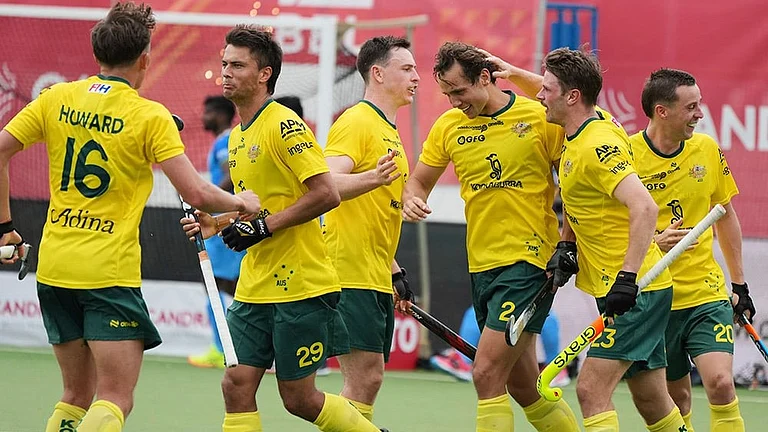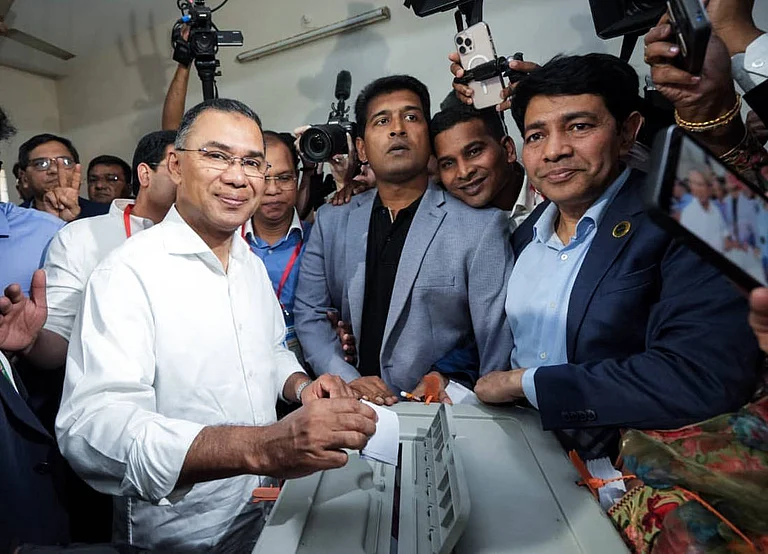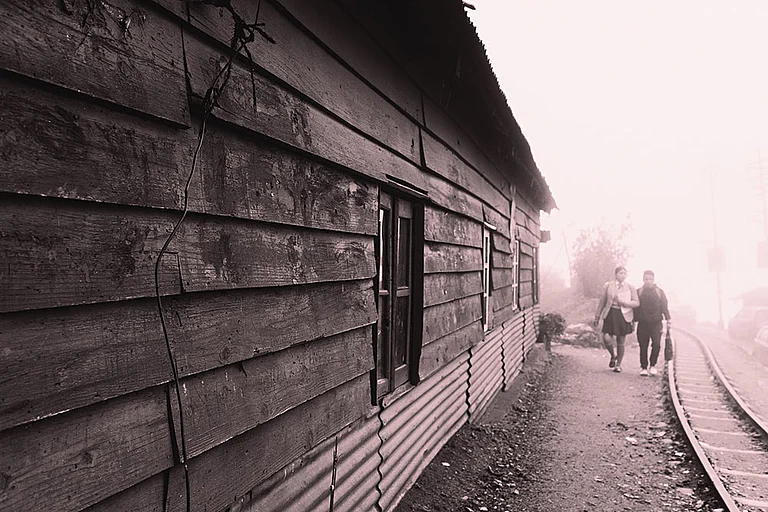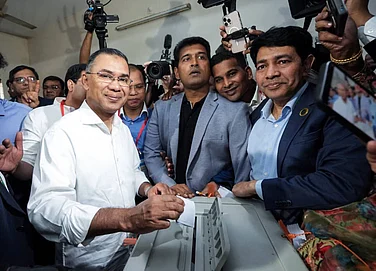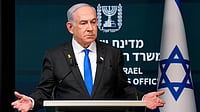A Delhi Court on Thursday granted bail to Wrestling Federation of India (WFI) chief Brij Bhushan Sharan Singh and co-accused Vinod Tomar in the wrestlers sexual harassment case.
Singh and Tomar were out on interim bail that the court granted to them on Tuesday. They were never arrested during the course of investigation.
Singh, a Member of Parliament from the ruling Bharatiya Janata Party (BJP), has been accused by six wrestlers of sexual harassment. He has been charged by the Delhi Police with sexual harassment and stalking. Tomar has also been charged with sexual harassment, stalking, and abetment.
In its bail order, the Delhi court noted that the prosecution did not oppose the bail application and that the accused were never arrested during the course of the investigation. Drawing upon these facts of the case and a precedent set by the Supreme Court in an earlier judgement, the court granted bail to Singh and Tomar.
While the prosecution did not oppose the bail, the lawyers representing the complainants opposed the bail, but the court went ahead with the order after laying down certain conditions for the accused.
Here we explain what the various parties said, what the court observed in its bail order, and what conditions the court imposed on the accused.
What did prosecution and defence say in bail hearing?
The prosecution did not oppose the bail application for Singh and Tomar.
The defence sought the bail for the accused and said that the accused are innocent and have cooperated with the investigation and will continue to do so. It was also argued that as Singh is an MP, the denial of bail would hamper his work as a public representative.
While the prosecution did not oppose the bail order, it said the accused could intimidate the complainants and suitable conditions should be imposed on them.
"The Additional Public Prosecutor has not even opposed the bail...However, he has expressed his apprehension that the accused persons may approach the victims and may try to influence them in future, however the present entails no such detail," noted Additional Chief Metropolitan Magistrate (ACMM) Harjeet Singh Jaspal in his bail order.
The counsel for the complainants, however, opposed the bail, saying that "the accused persons are influential people and the possibility of inducement to witnesses and threat to the victims cannot be ruled out", according to the court order.
Earlier this year, six women wrestlers and a minor wrestlers accused Singh of sexual harassment. While the Union Sports Ministry formed panels to look into the case, the wrestlers, frustrated with inaction over their complaints, began a sit-in protest in Delhi. After weeks of protests, Delhi Police filed two FIRs in the case on April 28. One FIR was filed under the sections of the Indian Penal Code (IPC) on the complaints of women wrestlers and the second was filed under the sections of the Protection of Children from Sexual Offences (POCSO) on the complaint of the minor wrestler.
Later, on June 15, the police filed charge sheet in the case and charged Singh with sexual harahssment and stalking. Singh's co-accused Tomar was also charged with sexual harassment, stalking, and abetment. The police, however, sought the cancellation of the POCSO case as the complainant had withdrawn the case.
The police never arrested Singh during the course of their investigation and the fact was central to the bail order.
What did the court say in its bail order?
The court noted that the prosecution did not oppose bail and referred to guidelines laid down for bail by the Supreme Court.
The court also noted that the allegations, that Singh harassed the complainants for around 10 years, are serious. However, the court also noted that the accused were never arrested during the course of the investigation and it has to assess whether it's needed now.
The court also noted that the prosecution never said that the accused would hamper with the investigation or damage evidence.
"At no stage, the Investigating Agency, speaking through the Ld. Additional Public Prosecutor, has expressed its apprehension that the accused persons are abusing their positions or are making attempts to tamper evidence. What has been conveyed is that sufficient conditions must be imposed to the extent that the accused persons do not, directly or indirectly, approach the victims so as to influence them," said the court.
The court further cited a Delhi High Court judgement as saying: "If a person has been at large and free for several years and has not been even arrested during investigation, to send him to jail by refusing bail suddenly, merely because charge-sheet has been filed is against the basic principles governing grant or refusal of bail."
Further drawing upon the Supreme Court's order in the Satender Kumar Antil Vs CBI (2022), the court ordered that no purpose is served by arresting the accused at this point.
"In the matter at hand, in my considered opinion, at this stage, no purpose will be served by taking the accused persons in custody, at this stage," said the court and granted bail to the accused.
The conditions for Brij Bhushan's bail
The court imposed five conditions for Singh's and Tomar's bail.
Among others, the court said the accused would not threaten or offer inducement to the complainant or witness and would not leave the country without the permission of the court.
- The accused shall not tamper with any evidence, nor shall they make any threat/inducement/promise to any victim or any other witnesses in any manner whatsoever
- The accused shall attend the court whenever called
- The accused shall not commit any similar crimes, of which they are suspected
- The accused shall not leave the country without the prior permission of the court
- The accused persons shall furnish a bond of Rs 25,000 each, with one surety in like amount







